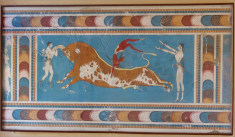Speaker
Description
A self-organized critical system under influence of turbulent motion of the environment is studied. The system is described by the anisotropic continuous stochastic equation proposed by Hwa and Kardar [{\it Phys. Rev. Lett.} {\bf 62}: 1813 (1989)]. The motion of the environment is modelled by the isotropic Kazantsev--Kraichnan ``rapid-change'' ensemble for an incompressible fluid: it is Gaussian with vanishing correlation time and the pair correlation function of the form
| Is this abstract from experiment? | No |
|---|---|
| Is the speaker for that presentation defined? | Yes |
| Internet talk | Yes |

